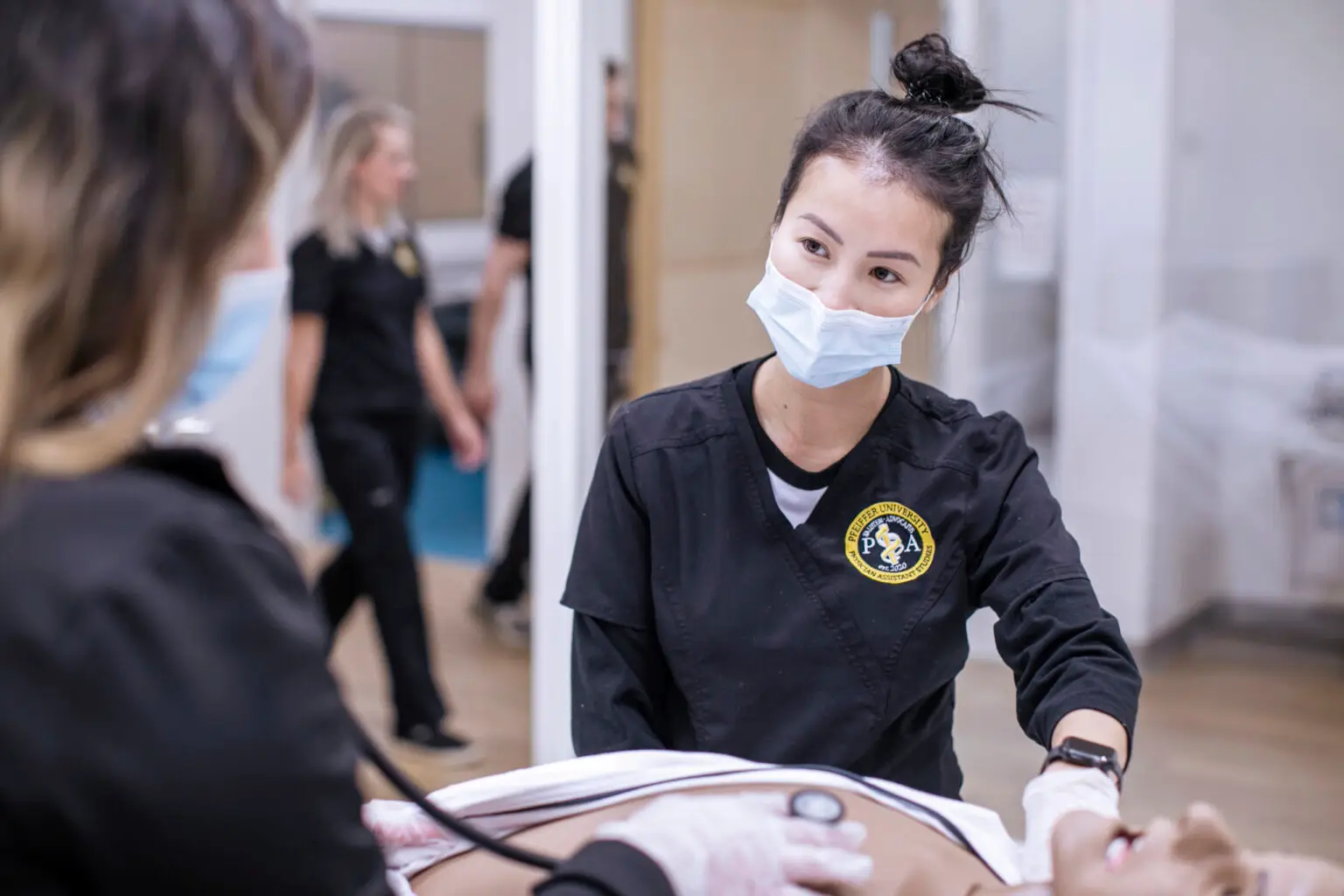Access to healthcare in rural communities is an ongoing challenge. The combination of fewer facilities along with a limited supply of providers results in areas of reduced access to care.
In June 2017, the Golden LEAF Board awarded $500,000 to Pfeiffer University for a new Physician Assistant (PA) program to help increase access to rural healthcare providers. Golden LEAF funds supported resources and training, furnishings, and technology, including simulation equipment.
The Pfeiffer University PA Program’s inaugural class started in January 2020 and is expected to complete the program in May 2022. Shortly after the launch of the new program, the COVID-19 pandemic shifted the PA curriculum from face-to-face to online.
“Although the courses were virtual, the program was able to provide opportunities for practicums and assessment of practical skills using personal protective equipment, practicing social distancing and frequent handwashing,” said Dr. Brenda Diaz, the Anne Louise Keeney Chair and Program Director of the Master of Science in Physician Assistant Studies at Pfeiffer University. “The Physician Assistant program slowly transitioned to fully in-person delivery of the curriculum during the summer 2020 session.”
The new 27-month PA program prepares clinicians to deliver healthcare as well as understand community healthcare disparities through service-learning.
“The program’s focus is to educate exceptional clinicians who will provide high-quality healthcare services in rural communities,” said Diaz. “The program operates a health clinic that provides free Physician Assistant and Occupational Therapy services to area residents in rural Albemarle, N.C.”
A key component of the new PA program is its simulation equipment. Pfeiffer University has used the simulators extensively since starting the PA program in January 2020.
“Simulation-based medical education replicates clinical scenarios through the use of human simulators,” said Diaz. “This teaching method, which is a key feature of the Physician Assistant program, has demonstrated improved patient safety and medical provider competencies. Simulation medical education will certainly facilitate the program’s mission and vision.”
The PA students participate in experiences that help them to serve and empower underserved communities.
“Students participate in collaborative service-learning experiences, where they identify a specific healthcare disparity within the community and then design and implement a self-sustaining program that addresses the disparity and empowers the community,” said Diaz. “Through these experiences, the students will gain real-life practice in culturally competent healthcare for the underserved.”
Diaz is confident that graduates of the PA program will help mitigate shortages in primary care providers in rural areas of the region and state.
“Pfeiffer Physician Assistant graduates will be equipped with the skills and knowledge needed to provide high quality, accessible and equitable healthcare in rural, medically underserved communities and beyond,” said Diaz.

